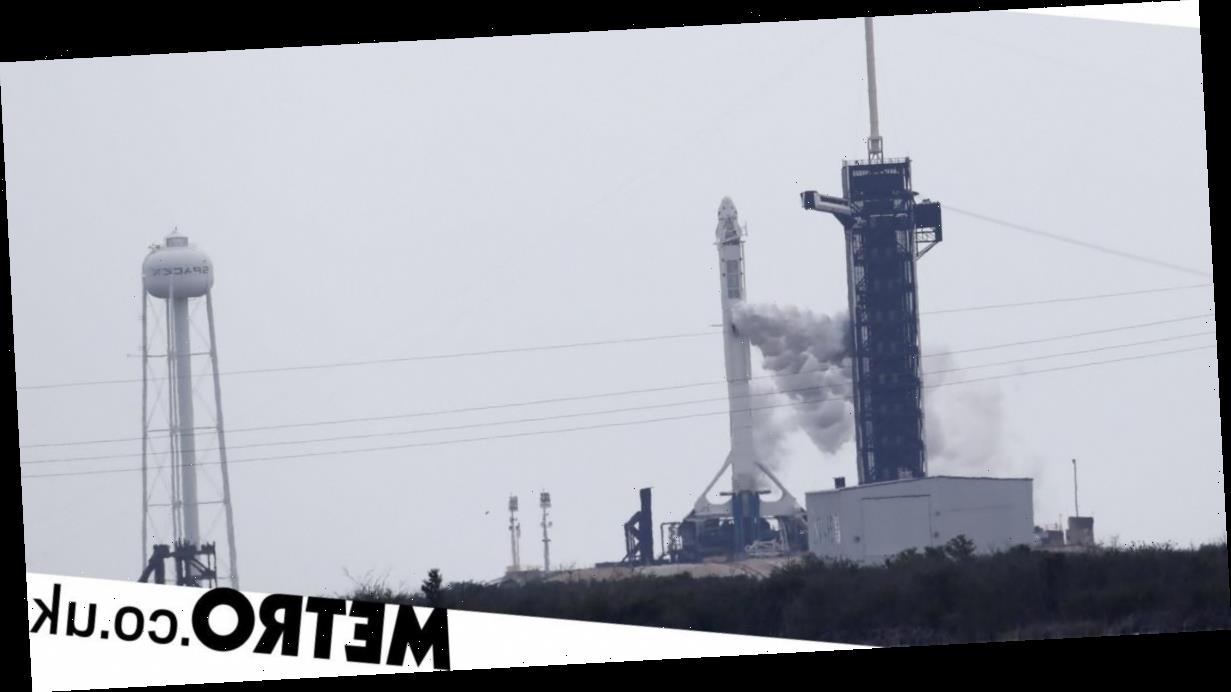SpaceX was forced to postpone the launch of its first crewed journey into space on Wednesday due to inclement weather.
The private American aerospace manufacturing company founded by Elon Musk had been scheduled to send up its first crewed rocket last night – marking the first manned US mission into space since 2011.
However, the plans were put on hold, with SpaceX and Nasa beginning the ‘scrub sequence’ which involved unloading the rocket’s propellant and disembarking astronauts Douglas Hurley and Robert Behnken.
So just when will the rocket now launch?
When will SpaceX launch?
The launch of SpaceX has been rescheduled for Saturday at 3.22pm.
The crew will be traveling to the International Space Station aboard a SpaceX Crew Dragon and they will be the first Nasa astronauts to have launched from American soil since the Space Shuttle program folded nine years ago.
Saturday’s launch will see the rocket and its crew members – who have been in quarantine as part of special precautions taken in the wake of the coronavirus pandemic – propelled into space by a Falcon 9 rocket.
They will take more than a day to reach the International Space Station.
Wednesday’s postponed mission, dubbed Demo-2, was set to be SpaceX’s first foray into human spaceflight.
Donald and Melania Trump are reported to have attended along with vice-president Mike Pence.
What is SpaceX?
SpaceX – or to give it its full name Space Exploration Technologies Corp – was founded by Elon Musk in 2002 and is run by him to this day.
It’s a private space transportation services company which is based in Hawthorne, California.
SpaceX became the first private company to successfully launch, orbit, and recover a spacecraft in 2010, and it became the first private company to send an unmanned spacecraft to the ISS in 2012.
Human exploration programme manager at the UK Space Agency Libby Jackson has said that the work done by Nasa and SpaceX represents ‘a major milestone for the global space sector’.
She told the PA news agency: ‘We have been dependent on just a single way of getting to and from this amazing scientific laboratory we have up there.
‘To reinstate what we call dissimilar redundancy – a different way of getting to and from the space station – would be very significant for the future of the space station.’
Follow Metro across our social channels, on Facebook, Twitter and Instagram.
Share your views in the comments below.
Source: Read Full Article

